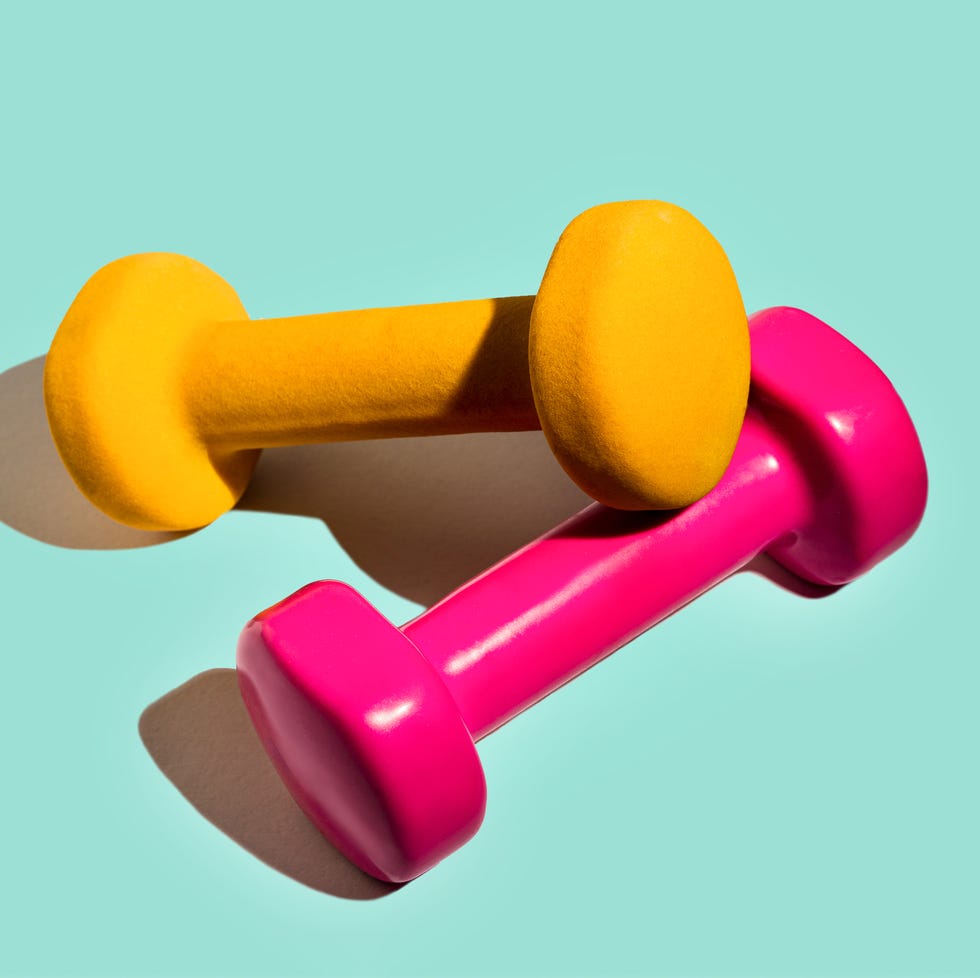1Make time to smile.
 Getty Images
Getty ImagesFrom laughing on the phone with an old friend to listening to Beyoncé to playing with your dog, don’t let joyful moments get elbowed out of your schedule, says Tochi Iroku-Malize, M.D., M.P.H., board chair of the American Academy of Family Physicians. Embracing joy can help you build resilience and avoid burnout.
2Help your mood soar.
 Ornitolog82//Getty Images
Ornitolog82//Getty ImagesGo for an a.m. walk to take in the chirping of the birds — research says that listening to their songs can improve your mood for up to eight hours.
3Just breathe.
 PeopleImages//Getty Images
PeopleImages//Getty ImagesYou may have heard about the calming benefits of mindful breathing, but it can be tough to remember the technique. Luckily, that doesn’t matter, says Michelle Di Paolo, Ph.D., of Stress and Relaxation Services of America. “Many people worry about the ‘right way’ to breathe deliberately, but when you overthink it you’re missing the benefits,” she says. “Any intentional, gently slowed breathing will lower stress.”
Advertisement - Continue Reading Below
4Stretch it out.
 oatawa//Getty Images
oatawa//Getty ImagesEvery time you get up from sitting, put your hands where your lower back meets your hips, says Liza Egbogah, D.C., a chiropractor in Toronto. Take a deep breath in and, as you breathe out, slowly look up to the ceiling and then try to see the wall behind you. Take five deep breaths, then slowly come back up. This helps decompress your spine and improve your posture, which reduces stress and improves mood.
RELATED: 10 Morning Stretches for Beginners to Try
5Swap your fats.
 tashka2000//Getty Images
tashka2000//Getty ImagesEating heart-healthier can be deliciously joyful. Cooking veggies? Use olive oil in place of butter. Making a sandwich? Spread creamy avocado instead of mayo.
6Team up to work out.
 Iryna Veklich//Getty Images
Iryna Veklich//Getty ImagesMake a weekly exercise date: “Exercise can be a fantastic way to build relationships and even inspire those around you,” says Stefani Sassos, R.D.N., nutrition director of the Good Housekeeping Institute and a NASM-certified personal trainer. A workout buddy can keep you motivated, which can help you stick with it. Plus, research shows that building close relationships is a key to happiness as we age.
Advertisement - Continue Reading Below
7Find your comfort level.
 CentralITAlliance//Getty Images
CentralITAlliance//Getty ImagesWhen it comes to COVID-19, “go out and enjoy your life while being mindful of the fact that it hasn’t gone away,” says Dr. Iroku-Malize. “If your baseline health is good and you’ve had your vaccines, then just remember to always wash your hands, and if you get COVID-19, stay home and take care of yourself.” For people at higher risk, it’s OK to say no to big social gatherings and continue to mask in public places, she adds — no apologies or guilt required.
8Keep it real.
 RedHelga//Getty Images
RedHelga//Getty ImagesDark leafy greens such as kale, spinach and Swiss chard are high in fiber, which can help prevent moodiness associated with blood sugar highs and lows, Meshulam says. Throw some chard into your soup, or mix a handful of spinach with your scrambled eggs.
9Get pickled.
 Nungning20//Getty Images
Nungning20//Getty ImagesAbout 90% of serotonin (the brain’s feel-good neurotransmitter) comes from the gut, says Marissa Meshulam, R.D., of MPM Nutrition. Fermented foods are full of probiotics, which can help maintain healthy gut microbiomes. Add sauerkraut to a salad or a sandwich, use Greek yogurt instead of sour cream or top a rice dish with kimchi, she suggests.
Advertisement - Continue Reading Below
10Eat greener.
 tycoon751//Getty Images
tycoon751//Getty ImagesDark leafy greens such as kale, spinach and Swiss chard are high in fiber, which can help prevent moodiness associated with blood sugar highs and lows, Meshulam says. Throw some chard into your soup, or mix a handful of spinach with your scrambled eggs.
11De-stress your neck.
 spukkato//Getty Images
spukkato//Getty ImagesSore from looking down at your phone all day? Lock your fingers behind your back and squeeze your shoulder blades together, then try to bring your hands toward the ground and hold for five breaths, suggests Egbogah.
Advertisement - Continue Reading Below
13Have a go-to second drink.
 Mike Garten
Mike GartenAlcohol may perk up your mood at first, but since it’s a depressant, the good vibes can quickly switch to depression and anxiety. To keep from overdoing it, have a nonalcoholic beverage in mind to order after your first glass of booze — say, pineapple juice and seltzer or even a classic Shirley Temple — you’ll also wake up feeling good the next day.
14Max out on cuddling.
 MoMo Productions//Getty Images
MoMo Productions//Getty ImagesYou may not always have time for sex, but you can hold hands with your partner as you shop for groceries, get some cuddles at the animal rescue or hug a friend. Research shows that physical contact lowers levels of the stress hormone cortisol.
15Do what you love.
 Morsa Images//Getty Images
Morsa Images//Getty ImagesThe world’s best workout will do nothing for your mind and body if you dread it. “Don’t be afraid to think outside the box and try something new,” suggests Sassos. “A dance- style workout like Zumba is a great way to begin — it is fun and upbeat and can even make you forget you’re there to work out.” If dance isn’t your thing, try something else with an element of fun, such as playing in a recreational soccer league or doing soothing yoga.
Advertisement - Continue Reading Below
16Schedule your annual check-up.
 SDI Productions//Getty Images
SDI Productions//Getty ImagesThere are so many health checks to take care of (mammogram, colonoscopy, vaccines) that it can be easy to get overwhelmed. Your primary care doctor can help keep you on track, Dr. Iroku-Malize says.
17Cheer up your tootsies.
 PeopleImages//Getty Images
PeopleImages//Getty ImagesNo one is happy when their feet hurt. Loosen yours up by doing these two stretches as soon as you wake up, suggests New York City podiatrist and foot surgeon Brad Schaeffer, D.P.M., star of My Feet Are Killing Me on TLC. “Lie in bed and spell out the ABC’s with your feet to get the blood pumping,” he says. Next, lean against a wall and do four reps of a calf stretch, holding for 10 seconds each time to stretch from your plantar fascia all the way up to your Achilles tendon and calf.
18Shore up support.
 Dougal Waters//Getty Images
Dougal Waters//Getty ImagesBuilding a community — in person or online — is vital for your well-being, especially if you have a disability, says Rhoda Olkin, Ph.D., a professor at the California School of Professional Psychology at Alliant International University: “Move away from people who make you feel bad about yourself and surround yourself with disability- affirmative friends.” It can help build resilience and boost mood.
Advertisement - Continue Reading Below
19Visit a museum.
 South_agency//Getty Images
South_agency//Getty ImagesPeople who regularly go on artsy outings may have a lower risk of developing depression.
20Spruce up your smile.
 Kubra Cavus//Getty Images
Kubra Cavus//Getty ImagesBrushing and flossing each day has multiple benefits for your body and your soul: Not only can taking care of your teeth reduce your risk of heart disease, but when you feel good about your chompers you may smile more, and according to research, just the act of smiling makes you feel happier.
RELATED: The Best Toothpastes, Recommended by Dentists

Marisa Cohen is an editor in the Hearst Lifestyle Group’s Health Newsroom, who has covered health, nutrition, parenting and culture for dozens of magazines and websites over the past two decades.
Advertisement - Continue Reading Below
Advertisement - Continue Reading Below
Advertisement - Continue Reading Below

































